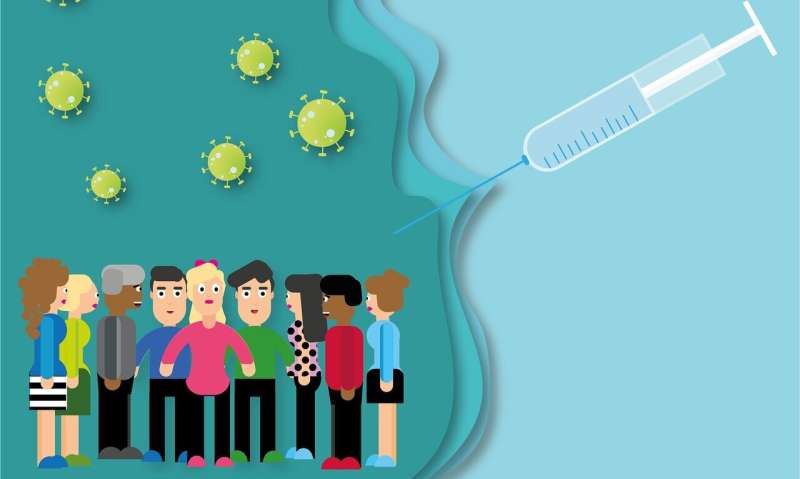WHO backs AstraZeneca jab in boost for poor countries

The World Health Organization on Monday approved the coronavirus vaccine developed by AstraZeneca, in a boost for poorer countries where millions of doses are set to be distributed.
While inoculation drives have been gaining pace, with nearly 172 million vaccine doses given worldwide, most of the jabs have so far gone to richer countries.
The AstraZeneca shot, which is easier to store and transport than some of its rivals, will account for almost all the doses set to be shipped under Covax, an international programme designed to ensure that poor countries do not miss out.
"Today we have even more reason to be hopeful of bringing the COVID-19 pandemic under control," WHO director-general Tedros Adhanom Ghebreyesus told a media briefing.
Governments are pinning their hopes on vaccines to end a pandemic that has killed more than 2.4 million people, but some rollouts are continuing to attract controversy.
Peru's foreign minister on Sunday became the latest senior figure to resign in a scandal over top officials jumping the queue for vaccinations.
Britain has meanwhile won plaudits for the speed of its vaccine drive, with more than 15 million receiving a first dose.
However, it remains one of the world's worst-hit countries with more than 117,000 deaths, and on Monday it began mandatory hotel quarantining for arrivals from high-risk countries.
Arrivals from the 33 "red list" nations must self-isolate in a hotel for 10 days—at a personal cost of £1,750 ($2,420, 2,000 euros).
"I'm not happy, but you have to do it," said one woman who had flown in from Zambia.
Schools dilemma
The hotel quarantine is aimed at limiting the spread of highly infectious newer strains of the coronavirus.
But Britain was also the origin of one of the variants that have since made their way around the world—with New Zealand the latest country to detect the British strain.
At least two people have tested positive for the strain in Auckland, prompting Prime Minister Jacinda Ardern to order a three-day lockdown in the city from Monday.
"I know we all feel the same way when this happens—not again," she said.
"But remember, we have been here before. That means we know how to get out of this—together."
Ardern has been widely praised for her handling of the pandemic, with New Zealand recording fewer than 2,000 infections.
In Vietnam, another country whose COVID response has won plaudits, the government has announced 15 days of restrictions in a northern province at the centre of a growing outbreak.
Gatherings of more than two people will be banned in Hai Duong province from Tuesday, while schools, bars, restaurants and karaoke parlours that were shut early ahead of the Lunar New Year holiday will stay closed.
In contrast, South Africa was reopening schools on Monday despite fears among some parents that the move is premature.
"I just have to trust the system that they will take care of my child," said 37-year-old Kelebogile Ngwenya as she dropped her son off at his school in Johannesburg.
In neighbouring Zimbabwe, health officials were preparing to start vaccinating—despite a deepening economic crisis and scant health resources—after receiving a first batch of China's Sinopharm vaccine.
'So frustrating'
In Europe meanwhile, Germany has warned that it will not rule out restrictions on its French border after already partially closing its frontiers with Austria and the Czech Republic.
Angela Merkel's spokesman Steffen Seibert said border closures were a "last resort" but Germany had to do everything possible to slow the spread of the new strains.
The checks have already caused knock-on effects, prompting new rules on the Austria-Italy border that have sparked huge traffic jams.
And there were fresh frustrations for holidaymakers too, as Italy's government banned ski resorts from reopening just a day before skiiers were due to be allowed back on the slopes.
"It's so frustrating! They are having a laugh," said skier Matteo Morsia, who had travelled 200 kilometres (120 miles) to the Italian Alps from Milan.
© 2021 AFP





















